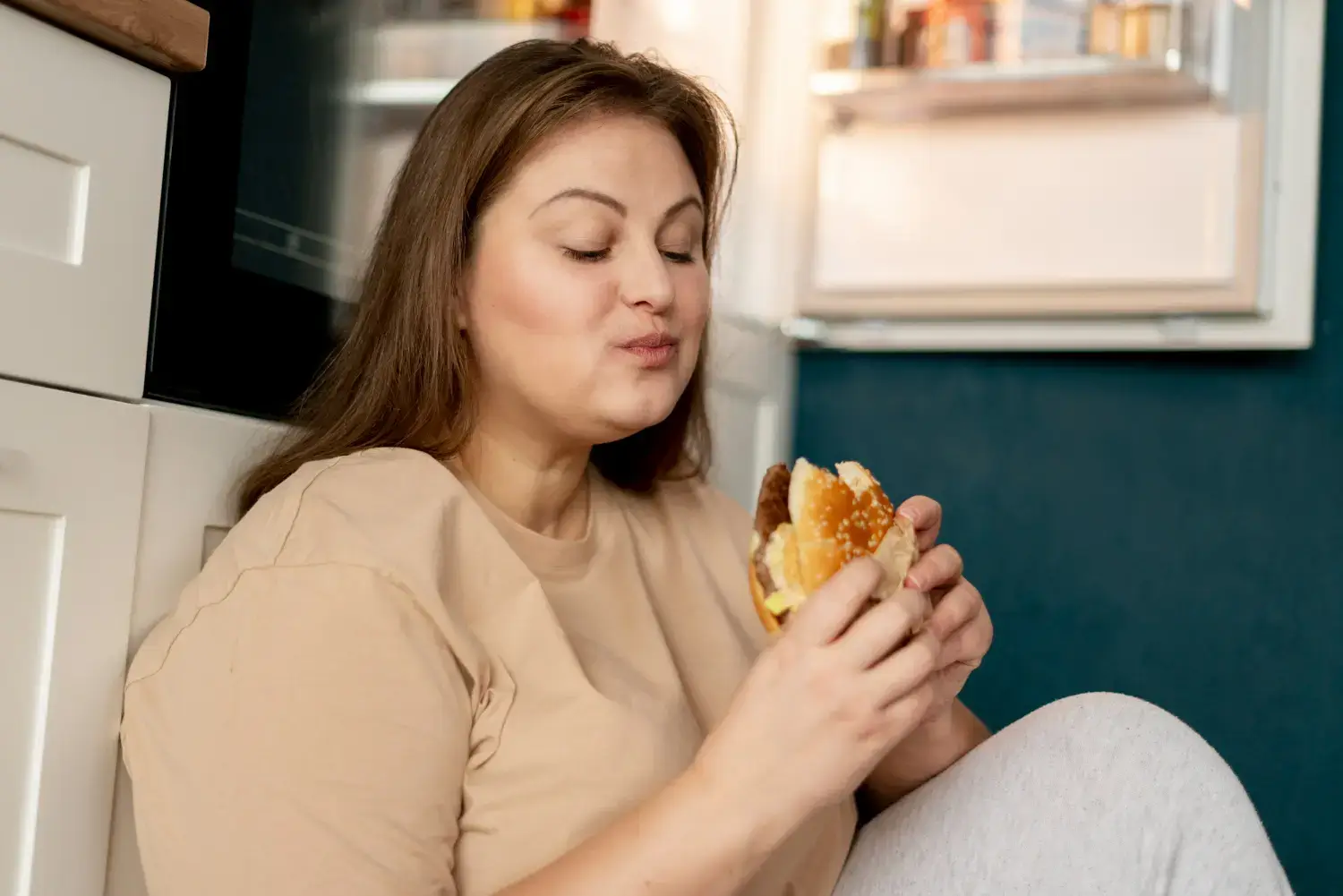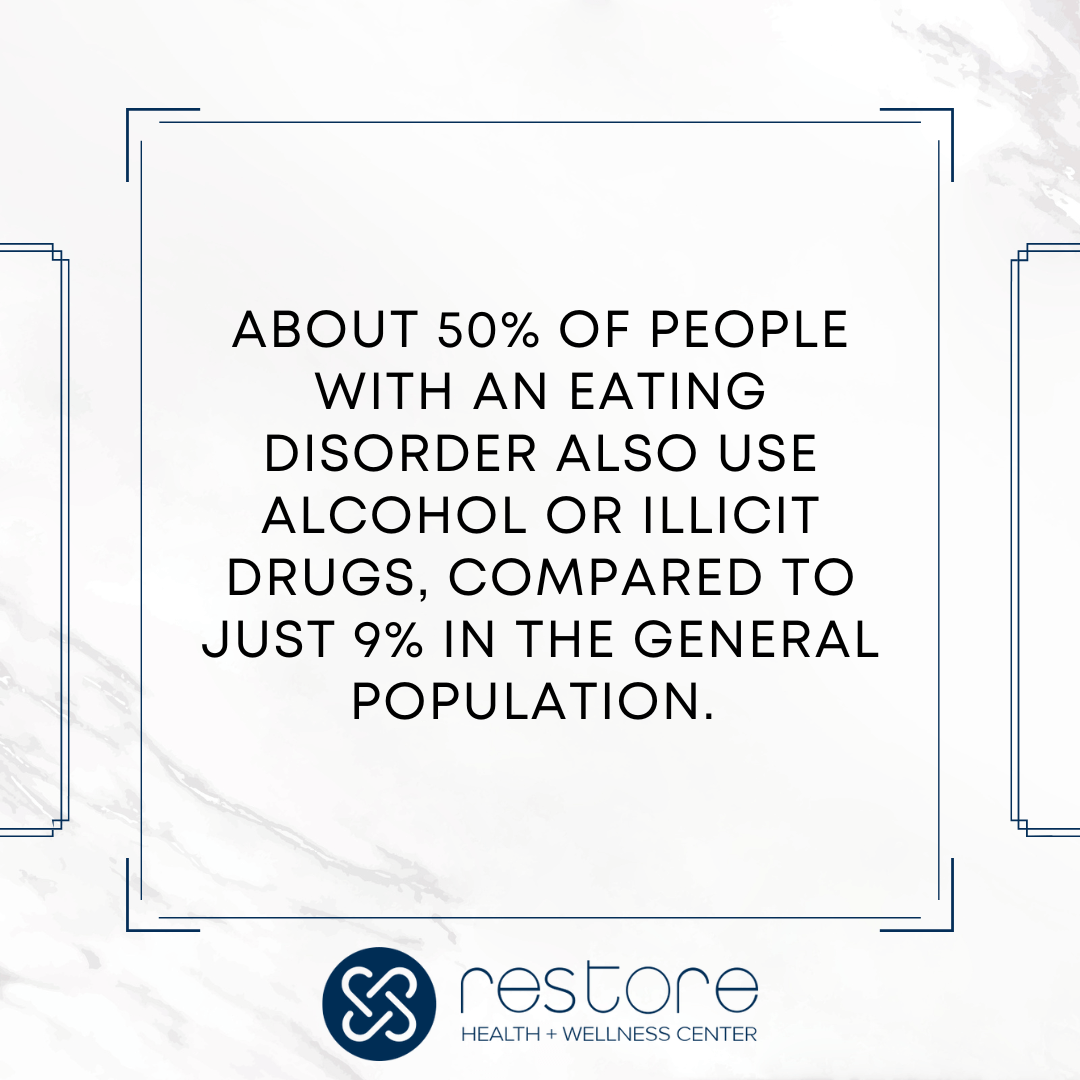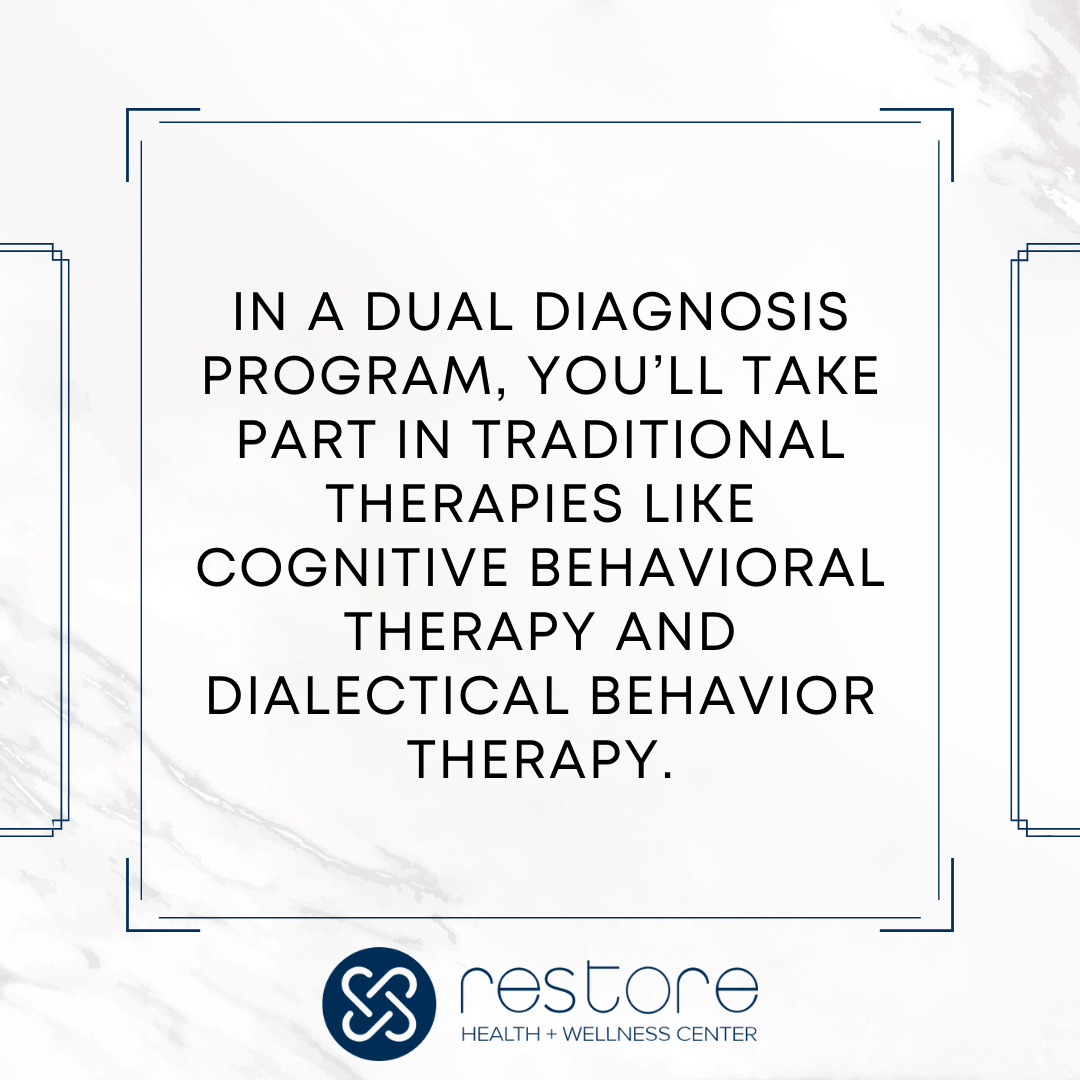
Eating disorders and drug use often occur together. In fact, about 50% of people with an eating disorder also use alcohol or illicit drugs, compared to just 9% in the general population. That isn’t a coincidence but a pattern that points to deeper, shared risks.
This combination creates serious medical and psychological complications, and it can’t be treated effectively by addressing only one issue. So if you want to know more about this link, this place is a good start.
In this blog, we’ll look at how these conditions connect and why integrated care at a rehab center in California can be critical for recovery.

How Eating Disorders and Drug Use Are Connected
The link between mental health and substance abuse becomes clear when you look at the shared traits behind eating disorders and drug use.
Anxiety, trauma, low self-esteem, and perfectionism are some of the most common threads. People may turn to substances to suppress appetite, blunt emotional pain, or feel more in control of how they look and feel. Drugs like stimulants, for example, are often misused for weight loss, while others use alcohol or opioids to disconnect from negative body image or internal pressure.
Control, secrecy, and compulsive behavior also play a major role. Whether it’s restrictive eating or substance use, both can become rigid routines that are hard to break and even harder to talk about.
Recognizing this overlap is the first step in building treatment that actually works.
Why Dual Diagnosis Treatment Matters
Treating eating disorders and drug use as separate issues doesn’t work. Focusing on one while ignoring the other often leads to relapse, missed warning signs, and incomplete or short-term recovery
As you learned, these conditions are deeply connected, and both need to be addressed together to make real progress. Dual diagnosis care looks at the full picture, including:
- Physical health
- Emotional patterns
- Overlapping behaviors
For example, you might stop using a substance but still be stuck in a cycle of restrictive eating or purging. This is especially important when your situation involves behavioral addiction. Compulsive patterns tied to eating, exercise, or drug use often reinforce each other, making integrated care the only approach that works.
When physical and mental health are treated together, long-term outcomes improve. And this is what makes dual diagnosis treatment utterly essential.

Treatment Options for Co-Occurring Eating Disorders and Substance Use
If you’re dealing with eating disorders and drug use, you need treatment that handles both at the same time. As mentioned, dual diagnosis programs focus on the full picture, helping you work through both the physical and mental sides of recovery without separating them.
Inpatient Rehab in California
When symptoms become severe or your health is at risk, inpatient rehab California gives you a structured, medically supervised space to start healing. You stay onsite, get 24/7 care, and follow a schedule that includes therapy, nutrition support, and medical check-ins.
This level of care is often necessary if you’re dealing with withdrawal, unstable eating patterns, or complications from long-term substance use.
What to Expect in a Dual Diagnosis Program
When you enter a dual diagnosis program, you’ll start with a full assessment so the care team understands what you’re dealing with. From there, they’ll build a plan that targets both the eating disorder and the substance use. You can expect:
- Daily therapy sessions (both one-on-one and group)
- Medical and mental health monitoring
- Case management and planning for what comes next
- Support for both physical recovery and emotional stability
Traditional Therapies, Nutrition, and Relapse Prevention
In a dual diagnosis program, you’ll take part in traditional therapies like cognitive behavioral therapy (which helps you identify and change harmful thinking patterns) and dialectical behavior therapy (which focuses on managing emotions and reducing self-destructive behavior). These approaches help you build healthier coping tools and break out of harmful routines.
At the same time, you’ll work with a nutritionist to rebuild a stable relationship with food. You’ll also develop relapse prevention strategies early on, so you leave treatment with tools that work.

Finding Support at a West Hollywood Addiction Treatment Center or Wellness Program
If you’re struggling with both eating disorders and drug use, finding the right kind of treatment is important.
A West Hollywood addiction treatment center can offer focused support with experience in co-occurring disorders, along with a setting that encourages long-term healing. Many centers in this area take a holistic approach, blending clinical care with wellness services like mindfulness, nutrition support, movement therapy, and trauma-informed practices.
You’ll also benefit from treatment that’s personalized and built around your specific challenges. Some of the key advantages include:
- Access to medical and mental health care in one place
- Therapists and staff experienced in co-occurring disorders
- Holistic services that support both body and mind
- A structured but supportive environment that encourages progress
- Customized plans that adjust as your needs change
Having a plan tailored to your needs, delivered in a safe and supportive environment, increases the chances of meaningful, lasting recovery.

Conclusion
Eating disorders and drug use often feed into each other, creating a cycle that’s hard to break without the right kind of support. Treating one without the other doesn’t work, as both require an integrated, personalized approach. Dual diagnosis programs, especially those that combine therapy, medical care, nutrition, and relapse prevention, offer the best path forward.
If you’re looking for care that treats the whole picture, Restore Center is a wellness center in California that specializes in co-occurring disorders. Our team understands the connection between eating behaviors and substance use, and we’re fully equipped to help you work through both with care that actually fits your life.
Recovery doesn’t have to be one-dimensional. It can start with the right team behind you. Get in touch now!




